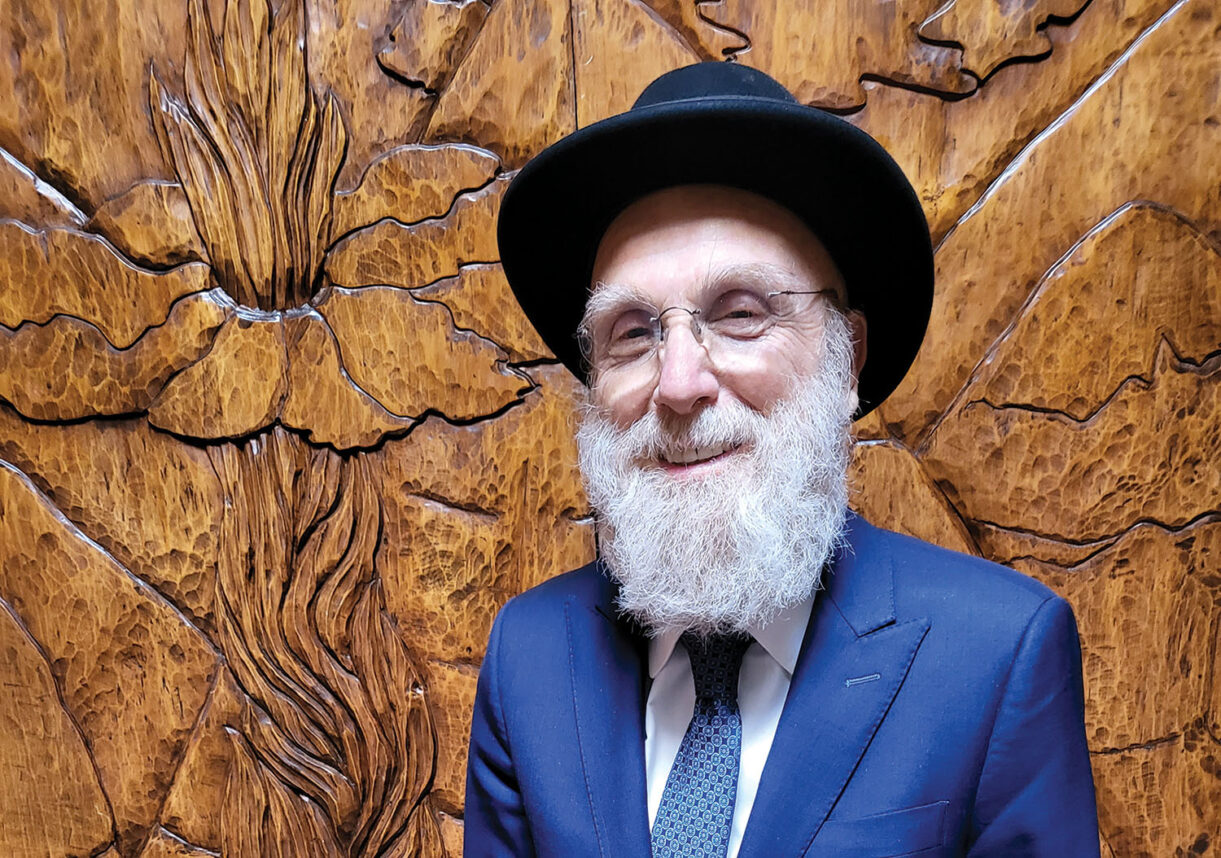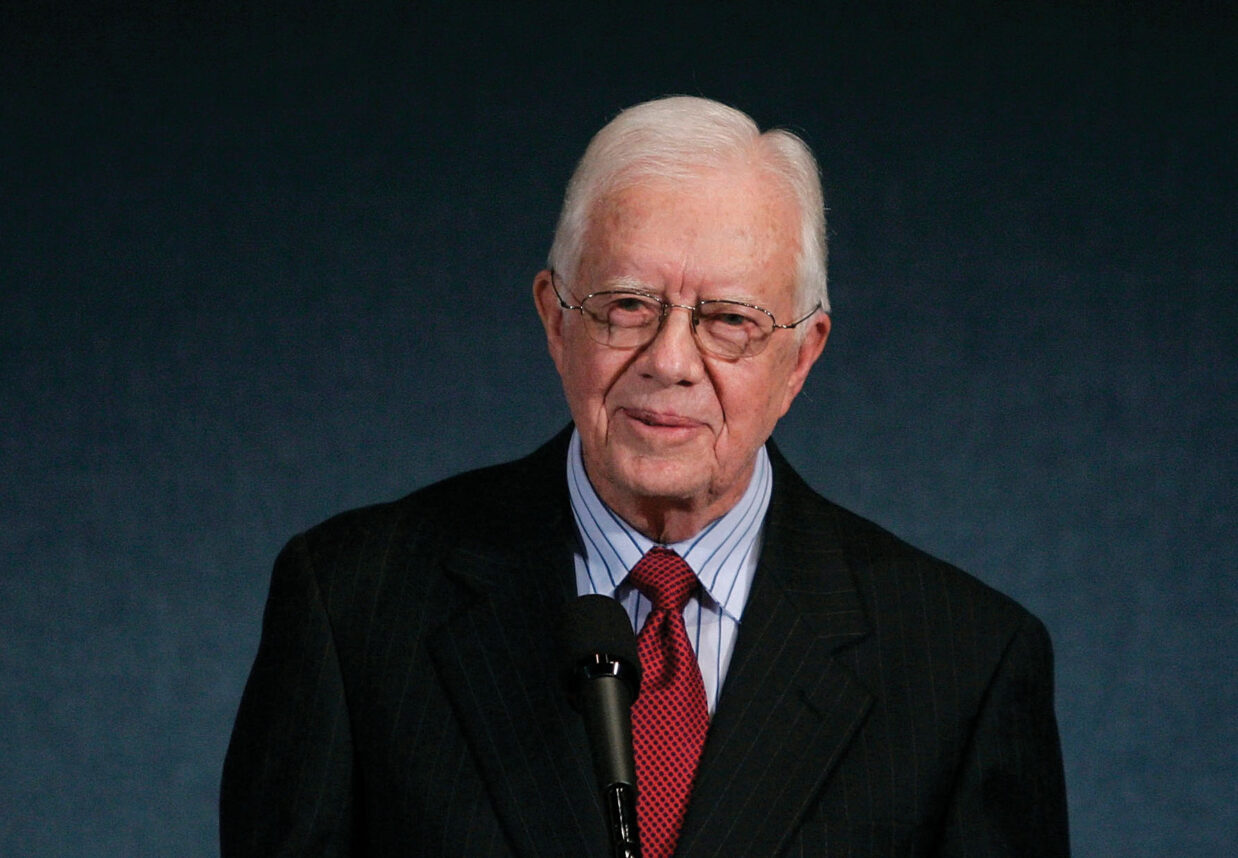Roger Waters, one of the founding members of Pink Floyd, had been scheduled to answer questions after last week’s screening of the documentary “The Occupation of the American Mind” at UCLA. The subject of the film, which he narrated, is media manipulation by pro-Israel forces — a topic on which the rock star has been outspoken.
Instead, Waters limited himself to a few short remarks before the film was shown. Members of the campus group Students for Justice in Palestine (SJP), which sponsored the Nov. 30 screening at the James Bridges Theater, said they had gotten wind of protests planned to disrupt his appearance.
“To get this movie shown at all is a monumental struggle. … They don’t want you to see it,” said Waters, a frequent critic of Israel. “Nobody wants you to see this film.”
After his brief remarks, Waters slipped out of the theater through a side door and the opening credits rolled. Yet, disruptions largely failed to materialize, despite fliers calling for a protest that were posted on Facebook by an anonymous group calling itself the Yad Yamin, Hebrew for “the right hand.”
Signs outside the event warned that disruptions would not be tolerated, and student speakers implored audience members to stay respectfully quiet — which, for the most part, they did.
The film asserts that Israel benefits from “the most successful public relations campaign in U.S. history,” said Sut Jhally, the film’s executive producer and a communication professor at the University of Massachusetts Amherst, who spoke with the Journal before attending the showing.
Jhally said he conceived of the UCLA screening as an “act of solidarity” after he heard that a group led by right-wing activist David Horowitz in May had hung posters around the university’s campus, naming and shaming students and faculty involved in pro-Palestinian activism.
Jhally said he phoned a friend, history professor Robin Kelley — a UCLA faculty member named on the posters — and arranged for the screening, one week after the film opened in Brussels.
“This is kind of ground zero for attacks on Palestinian activists,” Jhally said of UCLA.
In the film, journalists, academics and pro-Palestinian advocates suggest Israel was founded on the dispossession of Arabs from their land, that the country benefits from a top-down propaganda campaign, and that Hamas — the Palestinian Islamic political party that governs the Gaza Strip — is not a terrorist organization. The documentary names pro-Israel groups such as Friends of the Israel Defense Forces, The David Project and The Israel Project as agents of a media spin machine.
At various points, scenes of Israeli security forces manhandling Palestinian Arabs are shown as eerie background music plays.
A few audience members clapped awkwardly when pro-Israel video clips screened — although for the purpose of setting up the filmmakers’ rebuttals (before the screening, this reporter heard Hebrew conversation coming from that section of the audience). But otherwise, protests largely failed to take place.
“Someone, we aren’t sure who, had tipped off the police in an effort to stop it,” a person professing to be a Yad Yamin organizer wrote in an email to the Journal on Dec. 1, the day after the screening. The writer declined to provide a name (and claimed not to be a UCLA student), saying the group adheres to a “policy of anonymity.”
“With police having been informed, many got cold feet,” the email writer said. “There was no support for [the protest] from Jewish student groups on campus and sadly galvanizing young Jews to do so seems to be a tall order.”
However, he added, “We are viewing this as a victory after all if it stopped Roger Waters from partaking in the Q-and-A.”
In a Dec. 1 email, Yacoub Kureh, UCLA board chair of SJP, wrote that it was unclear to the organizers why Waters left early.
Before the event, a group of pro-Israel student organizations, including Bruins for Israel (BFI), agreed not to protest the screening to avoid another contentious incident in an already tense campus climate, BFI President Arielle Mokhtarzadeh said at the screening. Any protest, she said, would come from non-students or students unaffiliated with the organized Jewish community.
But in an op-ed published the day after the screening in the Daily Bruin, UCLA’s student newspaper, a group of some of the same pro-Israel organizations expressed disapproval of the film.
“The film is an intellectualization of the centuries-old, anti-Semitic conspiracy theory that a group of powerful, manipulative and domination-obsessed Jews have gained control of politics and media through a combination of wealth, power, influence and deceit,” they wrote in a statement signed by BFI, Students Supporting Israel, the Bruin-Israel Public Affairs Committee and Hillel at UCLA.
“Our disappointment, however, is directed not only toward the creators of this film, but at the students who have pushed to screen it,” the op-ed continued. “In doing so, they have provided a platform for the legitimization of identity-based hatred.”
After the screening, Jhally took Waters’ place in an onstage Q-and-A session. But questions were posed via Twitter and written on scraps of paper, forestalling pointed questions or arguments from the audience.
Kureh, the moderator, chose a number of critical questions, including one from Mokhtarzadeh, the BFI president. But some presumably pro-Israel audience members were unsatisfied.
“Why not have an open Q-and-A?” a person yelled from the back half of the room, prompting some of the event’s student organizers to begin moving toward that part of the theater.
“This is not a forum for truth!” another shouted.
The organizers converged on the outspoken audience members, but after a moment of heated conversation the audience members were allowed to stay.























 More news and opinions than at a Shabbat dinner, right in your inbox.
More news and opinions than at a Shabbat dinner, right in your inbox.